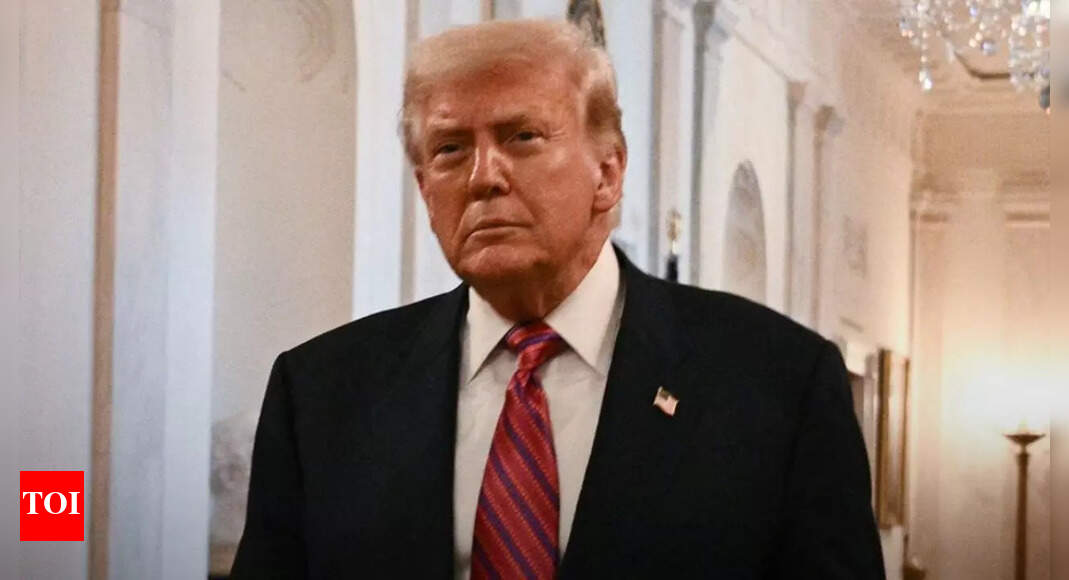President Donald Trump signed an executive order on July 24, 2025, aiming to regulate name, image, and likeness (NIL) deals in college sports. The order bans third-party "pay-for-play" payments while allowing fair endorsements. It also mandates increased scho…
Why it matters
- The executive order is designed to eliminate third-party financial influences in college athletics.
- It seeks to balance fair endorsement opportunities for student-athletes without compromising their educational benefits.
- The regulation comes at a time when NIL deals have become a contentious issue in college sports, raising concerns about equity and integrity.
On July 24, 2025, President Donald Trump signed a pivotal executive order aimed at redefining the landscape of name, image, and likeness (NIL) agreements in the realm of college sports. This directive comes in response to growing concerns over the financial dynamics affecting student-athletes and the integrity of collegiate athletics.
The newly implemented order explicitly prohibits any third-party “pay-for-play” arrangements. This move is seen as a crucial step toward ensuring that student-athletes are not exploited by external entities seeking to profit from their talents. By banning these practices, the administration aims to foster a system where endorsements are conducted in a fair manner, allowing athletes to benefit from their own personal brands without compromising their educational scholarships.
In addition to curtailing the influence of third-party payments, the executive order emphasizes the importance of safeguarding educational opportunities for student-athletes. It mandates that universities take proactive measures in ensuring that their athletes remain eligible for scholarships and financial aid while engaging in NIL deals. This provision seeks to maintain a balance between the financial prospects available to athletes and their academic commitments.
The executive order is particularly significant in light of the recent explosion of NIL deals, which have transformed the college sports landscape. As universities and athletes navigate this new reality, the order aims to provide a framework that both promotes fairness and protects the integrity of college athletics. This regulatory approach is expected to alleviate concerns from various stakeholders, including coaches, administrators, and fans, who worry that the commercialization of college sports could undermine traditional values.
Supporters of the executive order argue that it provides a necessary balance in a rapidly changing environment, where student-athletes are increasingly being seen as commodities. By establishing clear guidelines for NIL agreements, the order seeks to ensure that athletes are not only able to capitalize on their own identities but also retain the fundamental benefits of their college education. The prohibition on pay-for-play arrangements is intended to curb the potential exploitation of young athletes by powerful agents and companies eager to leverage their marketability.
Critics, however, may view the order as overly restrictive, potentially limiting the financial opportunities available to student-athletes. The landscape of college sports is already rife with disparities, and some argue that without the ability to negotiate lucrative endorsements, many athletes may miss out on essential financial support. The balance between fair compensation and maintaining the integrity of college athletics is a delicate one, and the effectiveness of this executive order will largely depend on its implementation.
Furthermore, this directive raises questions about the role of state legislation in regulating NIL deals. Several states had previously enacted their own laws governing NIL agreements, creating a patchwork of regulations across the country. The federal executive order may now prompt a reevaluation of these state laws, as institutions and athletes seek clarity and consistency in their dealings.
As the ramifications of this executive order unfold, college sports stakeholders will be closely monitoring its effects on both athletes and institutions. The overarching goal is to create a sustainable model that honors the contributions of student-athletes while ensuring their educational pursuits remain uncompromised. President Trump's initiative sets the stage for ongoing discussions about the future of college athletics and the evolving nature of student compensation in the sports industry.
In the coming months, as universities adapt to these new regulations, it will be crucial to observe how this executive order influences the dynamics of recruitment, scholarship distribution, and the overall financial landscape of college sports. The outcomes may very well dictate the future direction of the relationship between athletics and academia, impacting countless student-athletes across the nation.











